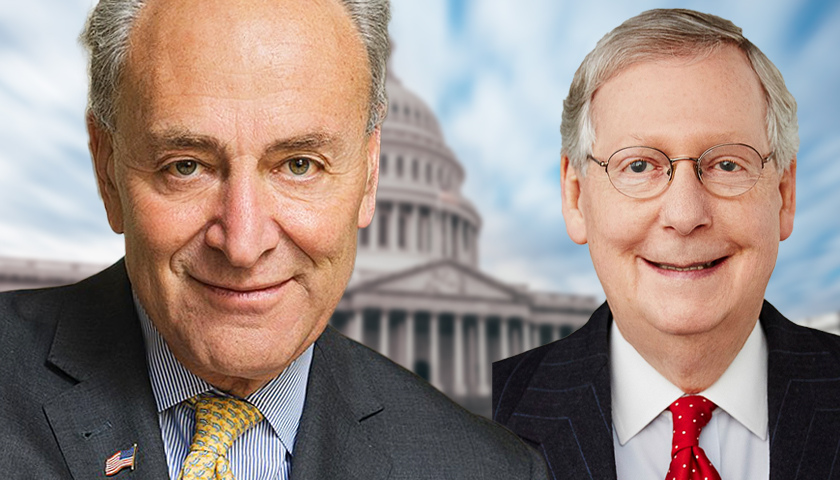by Andrew Trunsky
A bill that would enable Democrats to raise the debt ceiling without overcoming a Senate filibuster passed the chamber Thursday afternoon with bipartisan support.
The debt ceiling provisions were attached to a bill that prevents automatic cuts to Medicare. Ironically, the legislation, which passed the House on near party lines Tuesday, required 60 votes to overcome a filibuster, and passed after 14 Republicans joined Democrats in advancing it.
The provision was the product of a deal struck Tuesday between Senate Majority Leader Chuck Schumer and Minority Leader Mitch McConnell. Under it, Congress would pass a law allowing the debt ceiling to be raised with a simple majority this one time, and the bill’s passage puts the limit on a glade path to be lifted by Democrats alone ahead of Dec. 15, when Treasury Secretary Janet Yellen warned a default could occur.
 “This is the responsible path forward,” Schumer said on the floor ahead of the vote. “No brinkmanship, no default on the debt, no risk of another recession.”
“This is the responsible path forward,” Schumer said on the floor ahead of the vote. “No brinkmanship, no default on the debt, no risk of another recession.”
Despite the deal’s endorsement from McConnell and several top Senate Republicans, others in the caucus adamantly opposed it, arguing that it undermined their party’s longstanding vow to force Democrats to lift the limit as part of their reconciliation bill.
During a closed door GOP lunch Wednesday, South Carolina Sen. Lindsey Graham described the deal as if leadership “led them on a charge up a hill and they were getting shot in the back,” according to one senator who shared the remark with The Hill. Graham also warned that it would incur the wrath of former President Donald Trump, who has repeatedly criticized McConnell over not using the risk of a catastrophic default as leverage.
Even with the intraparty disagreements among Republicans, the deal is a sharp departure from the fall, when Republicans, including McConnell, were insistent that Democrats attach a debt ceiling increase to their tax and spending package. That standoff fizzled, however, when McConnell agreed to a short-term increase that staved off a default on the nation’s nearly $29 trillion debt as Congress worked on reaching a longer-term compromise.
McConnell, however, defended the agreement after he announced it, saying that it was in the best interest of the country.
“I think this is in the best interest of the country by avoiding default,” McConnel said Tuesday, The Hill reported. “I think it is also in the best interest of Republicans.”
– – –
Andrew Trunsky is a reporter at Daily Caller News Foundation.








